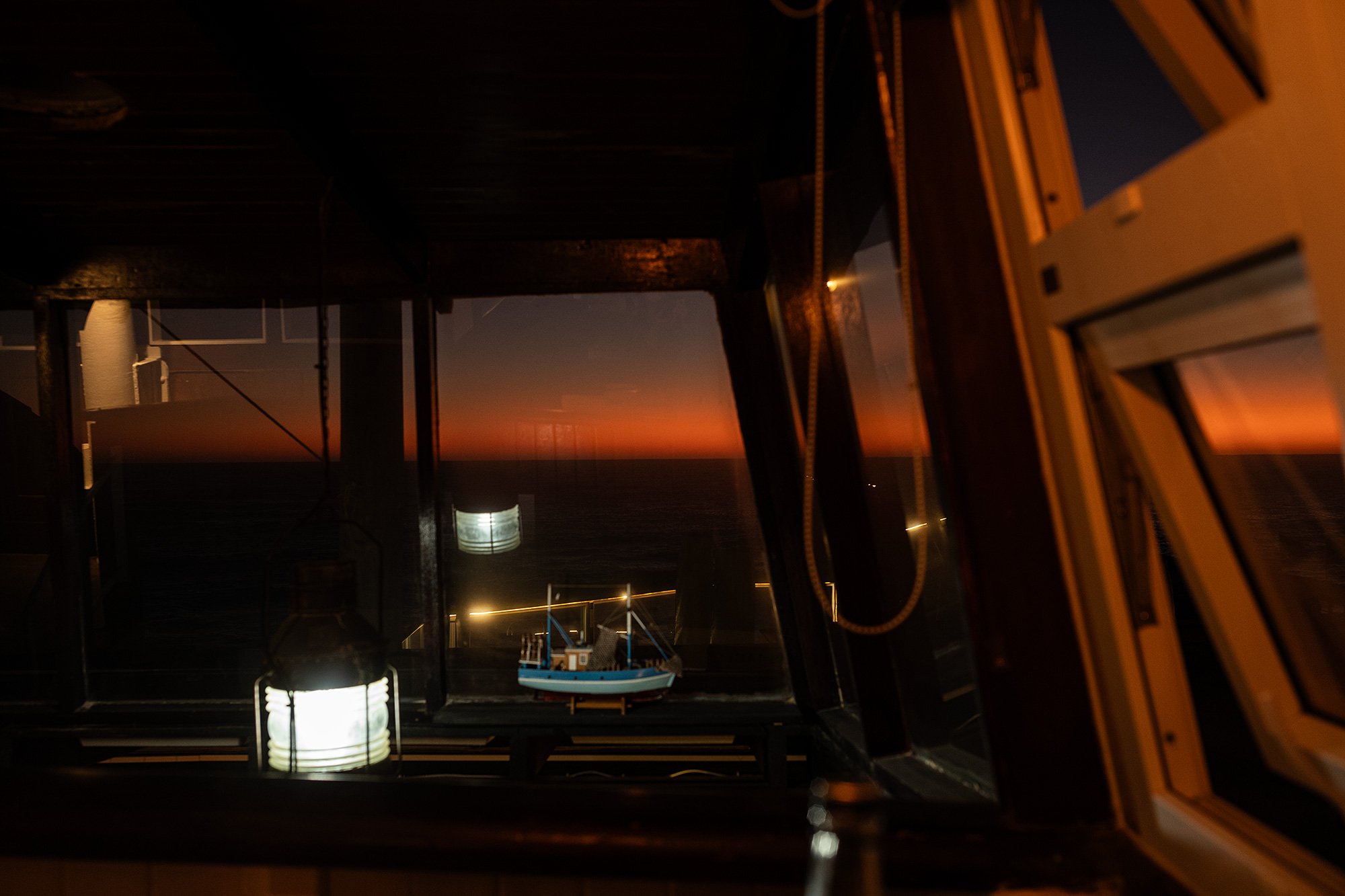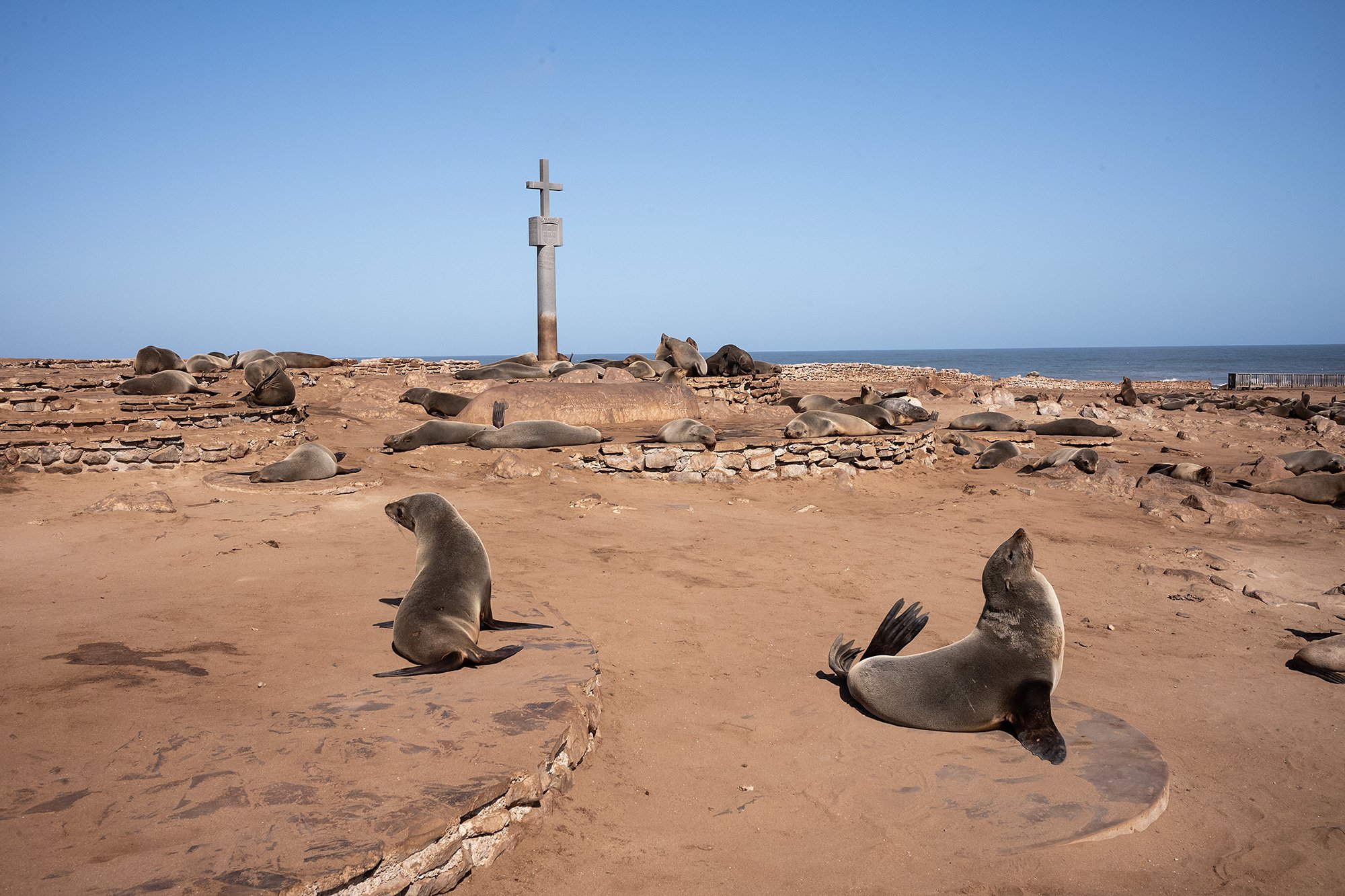
Namibia chapter sixteen
A trip up the Skeleton Coast to the Cape Cross fur seal reserve.
I sometimes wonder what younger me would think of me now.
Would white picket fence 2.5 children me be disappointed? Would the me that poured over National Geographic magazines be amazed at what we’ve been able to see and do? Which younger me would be happiest with present me?
These thoughts bang around my head as I prepare for the day. It’s the first of June and my birthday is around the corner, which probably informs my ruminations.
I’ve decided to spend the morning driving up the coast to visit the Cape Cross seal colony. Originally, I had planned to stop on my way to Damarland and Doro Nawas, but I’ve since decided to spend a night near Spitzkoppe to visit the “Matterhorn of Namibia.” The road there takes me due west away from the coast.
It’s still early when I back Olivia out through the gates of the car park. We drive out of town and head north; soon we are driving through the desert, skirting the sea.
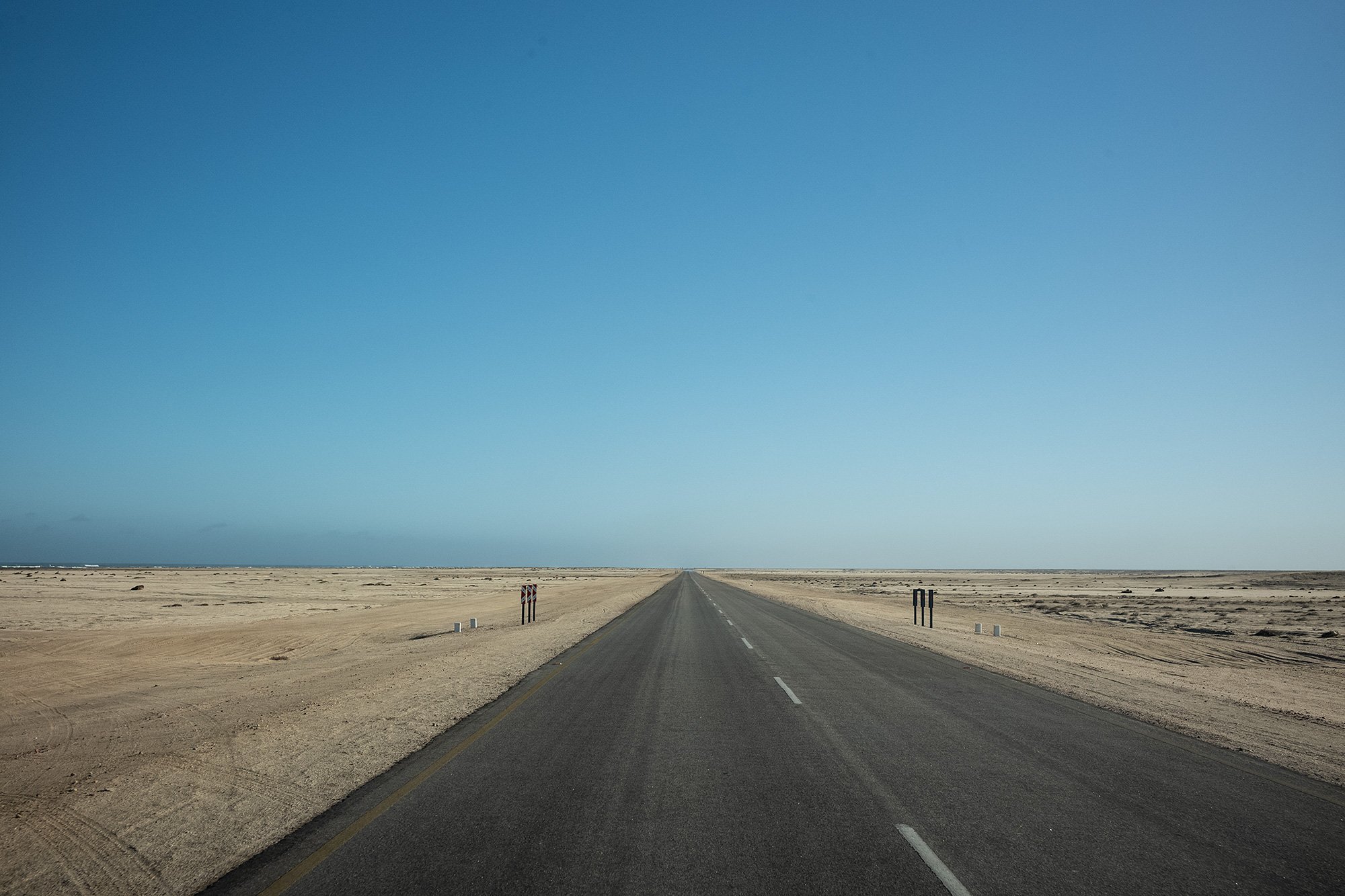

The road is new but familiar, almost a straight line up the coast before it winds through a small town and around the hills near Cape Cross. At one point I cross a shipwreck. A sign points to a small lot in which to park. I see it too late to slow down and resolve to stop on the way back to Swakopmund.
Nearing Cape Cross a number of makeshift showrooms line the road. Salt crystals and various semi-precious stones are laid out for sale. There are no sellers in sight; rusted-out tin cans nailed to the planks collect payment on the honor system. I stop to check out the wares, knowing I don’t have space in my bags for extra weight.
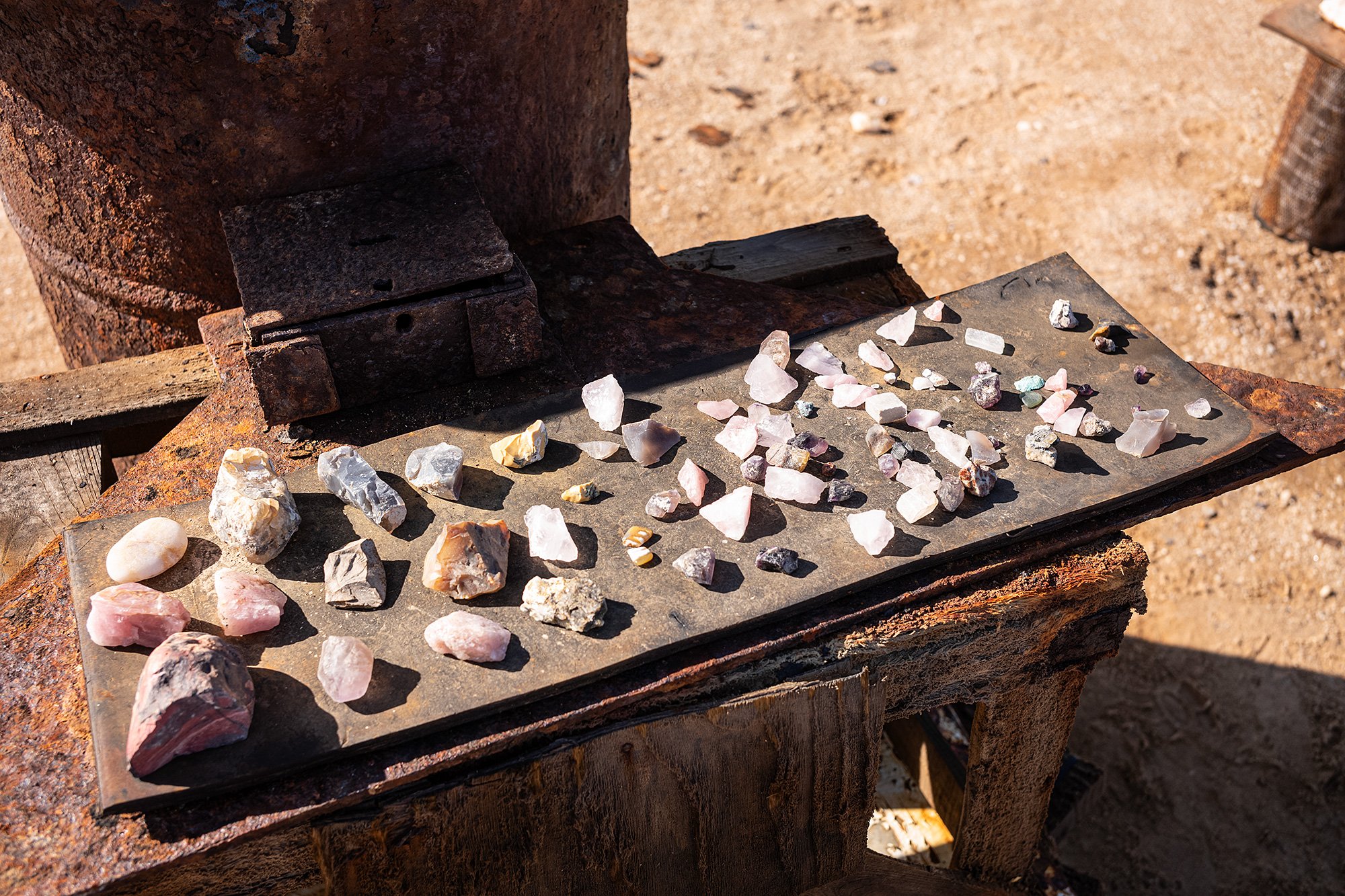
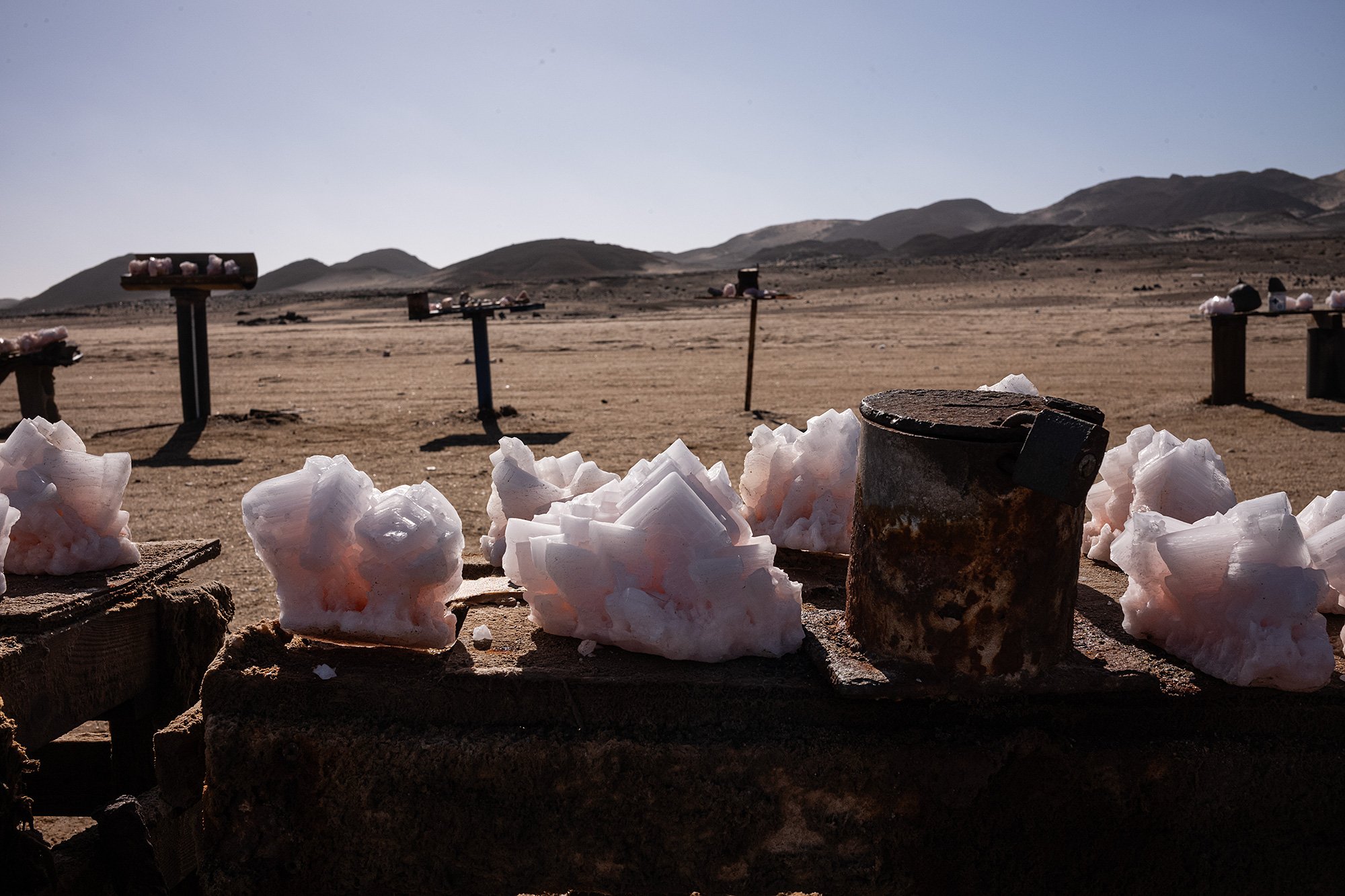

At the entrance to the seal reserve I stop in at a small building to pay my entrance fee and gather any information I might need. The sun’s out and the seals are everywhere, I’m told. You might not be able to access the walkway for vewing.
I thank the park attendant and head back to the car for the short drive to the colony, known to be one of the largest settlements of fur seals in the world. The cape itself is notable as the spot where the first European explorer set foot on the coast of Namibia in 1486. A cross was originally erected there by Diogo Cão to in honor of the king of Portugal. A replica now stand in its place.
When I reach the parking lot, I find that what I’ve been told is true. There are seals everywhere, covering the ground from the sea to the cross, practically spilling into the parking lot.
I make my way carefully to the cross, walking between seals, careful not to disturb them. I dodge quickly if I sense them shift.
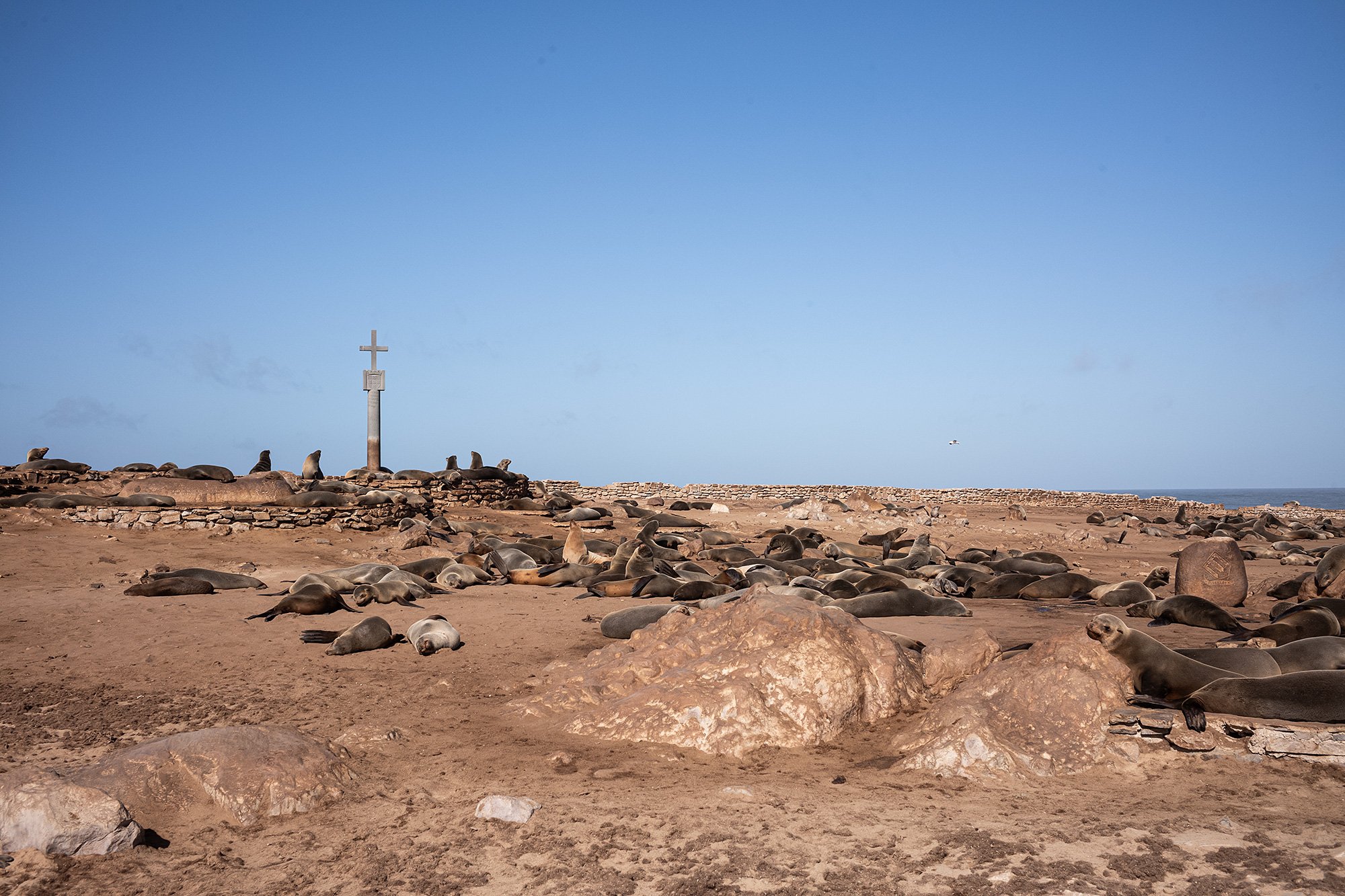
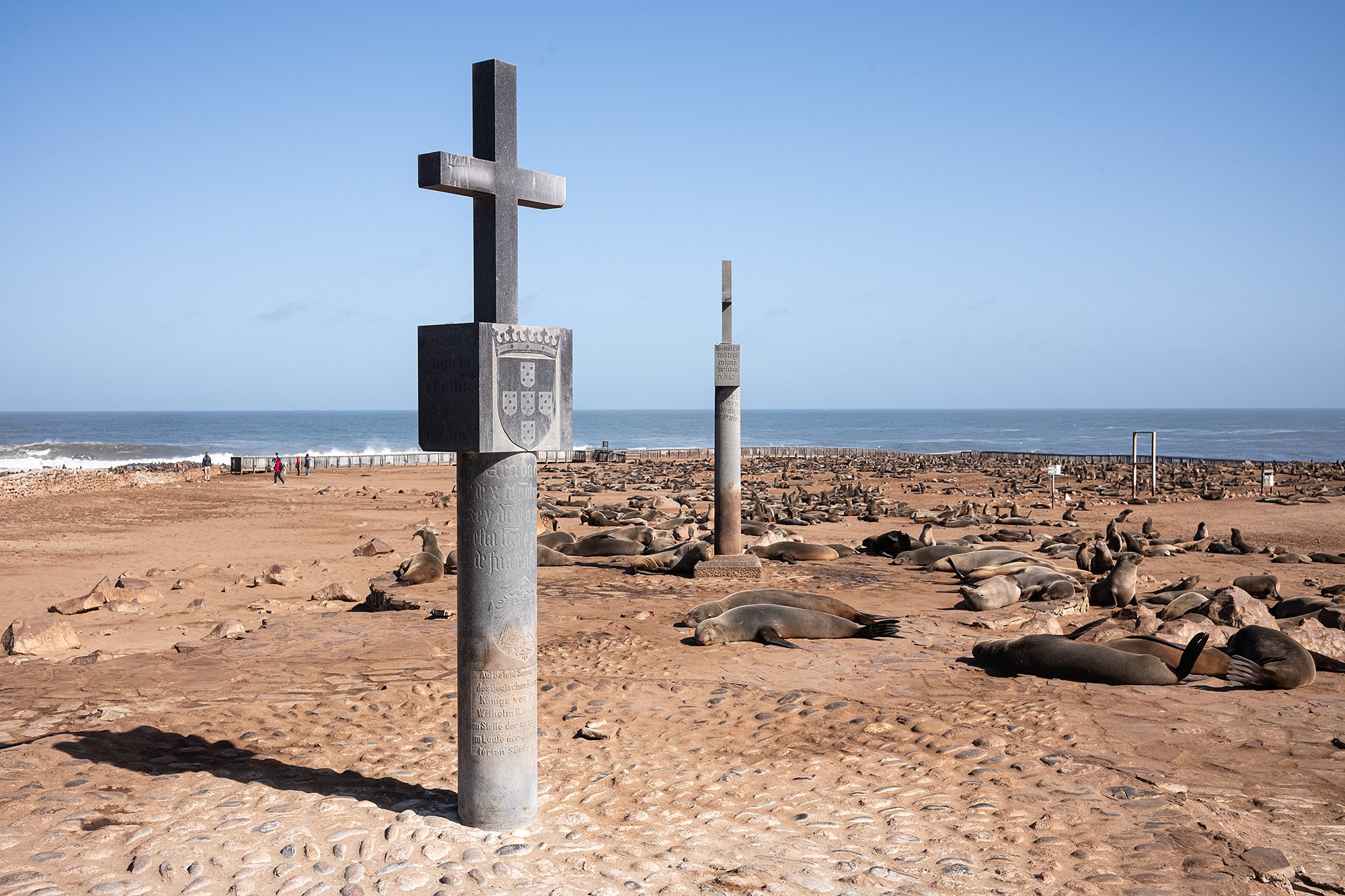
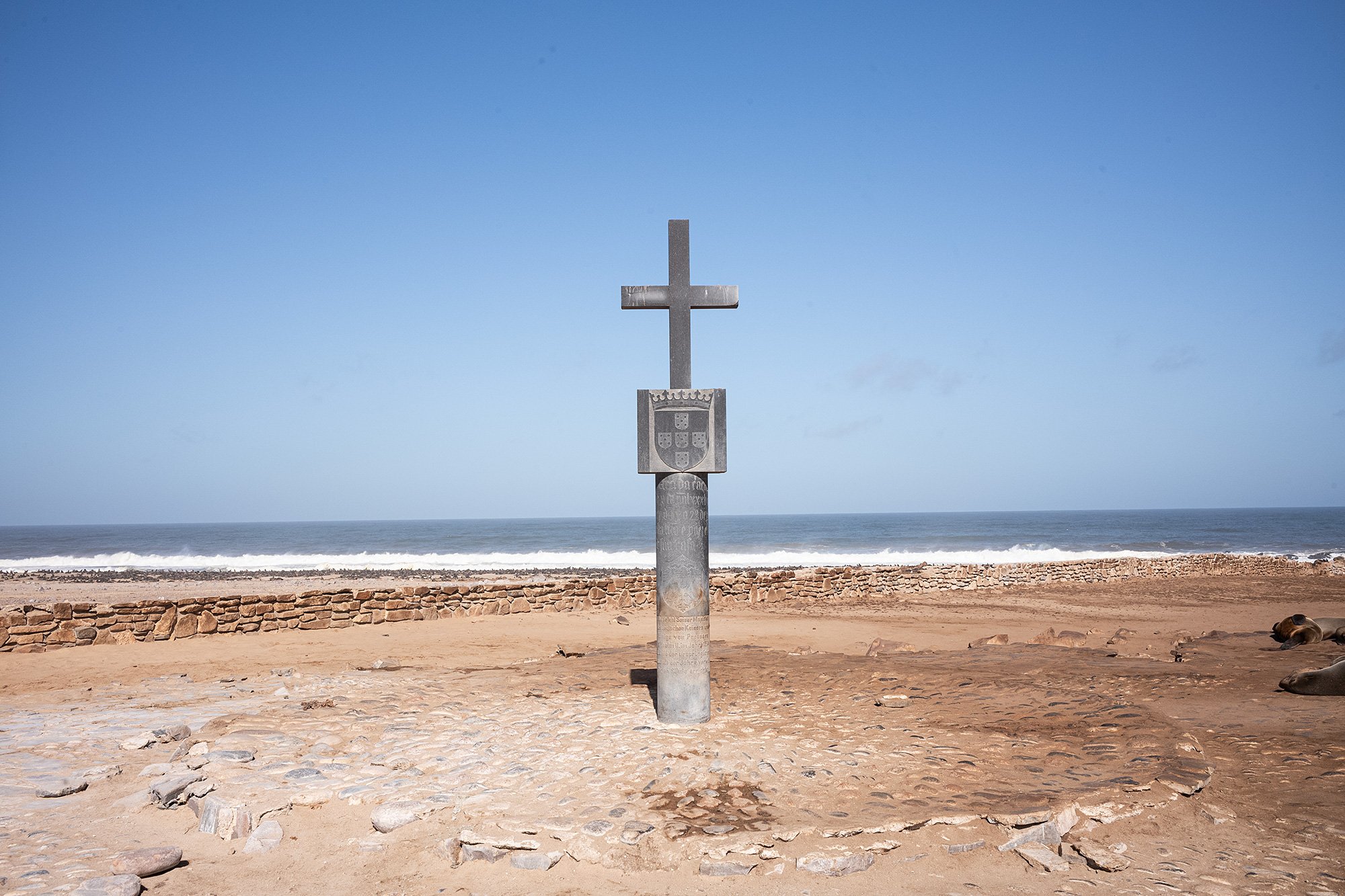
I survey the area, following a stone wall towards the beach. Looking to my right I see that the entrance to the walkway is blocked completely by a mass of seals. Seals lay on the sand, sun themselves on the stone wall.


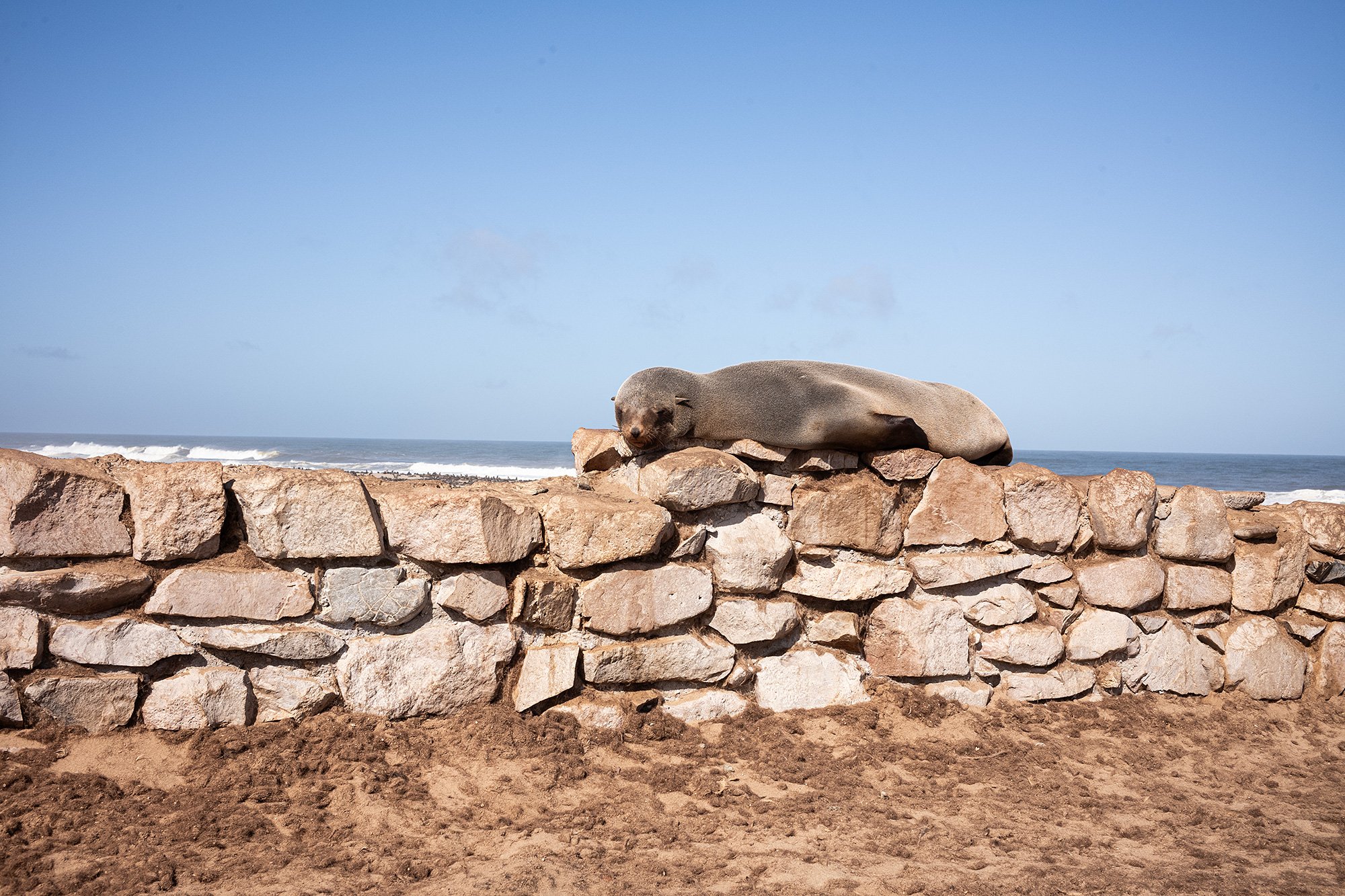
I walk to the other side of the parking lot. Seals cover the beach, play in the surf. Sometimes they jump, hurtling their entire bodies clear of the waves before plunging back into the sea.

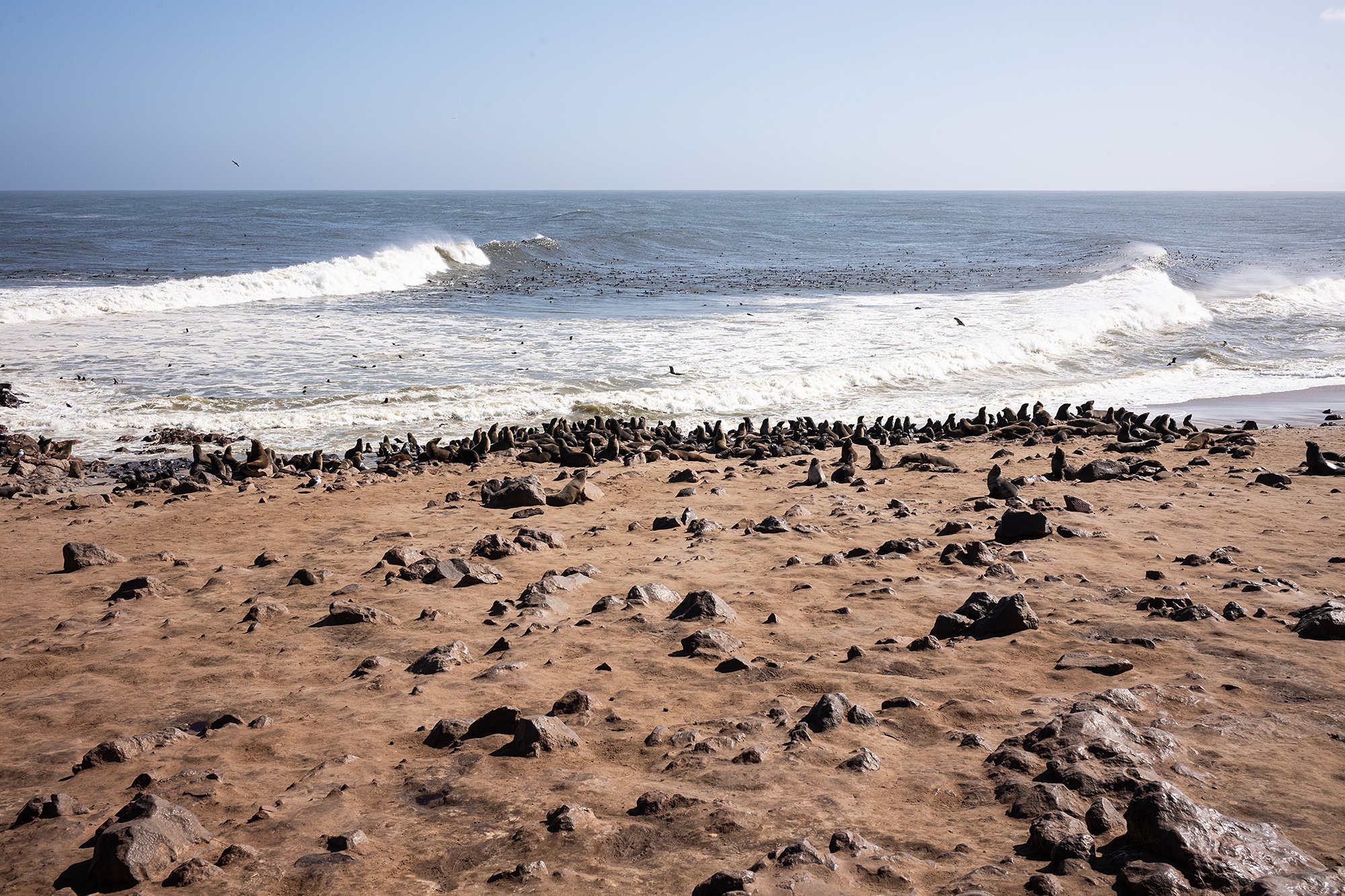

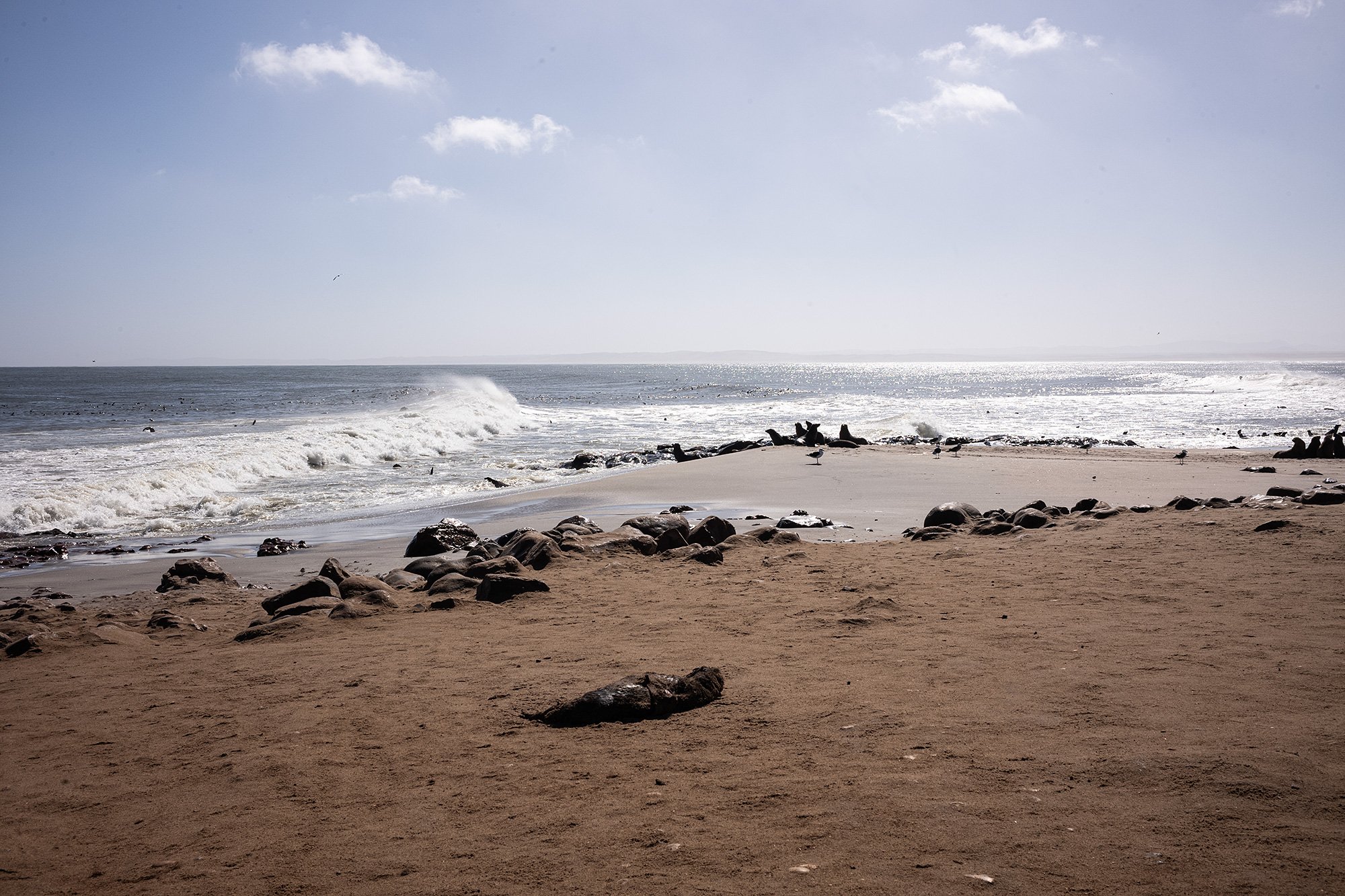
I cirlce back around to the walkway. Instead of entering through the gate I climb a railing to gain access. Seals dot the beach, right up to the path. I crouch down to take photos through the railings and look to my right. A seal basks on the walkway itself. I slowly back away and climb back over to safety, keeping the walkway between the seals and me.
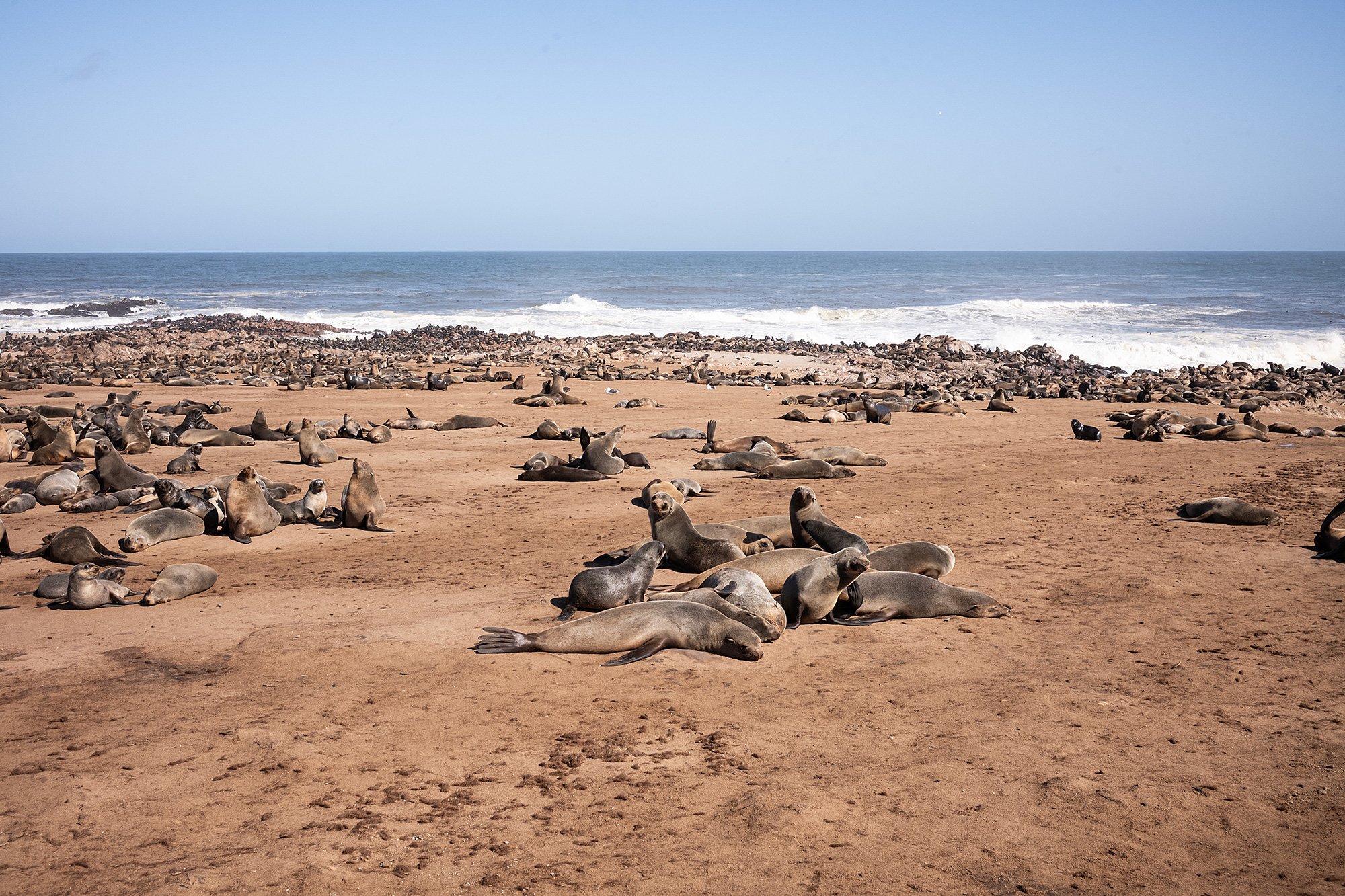
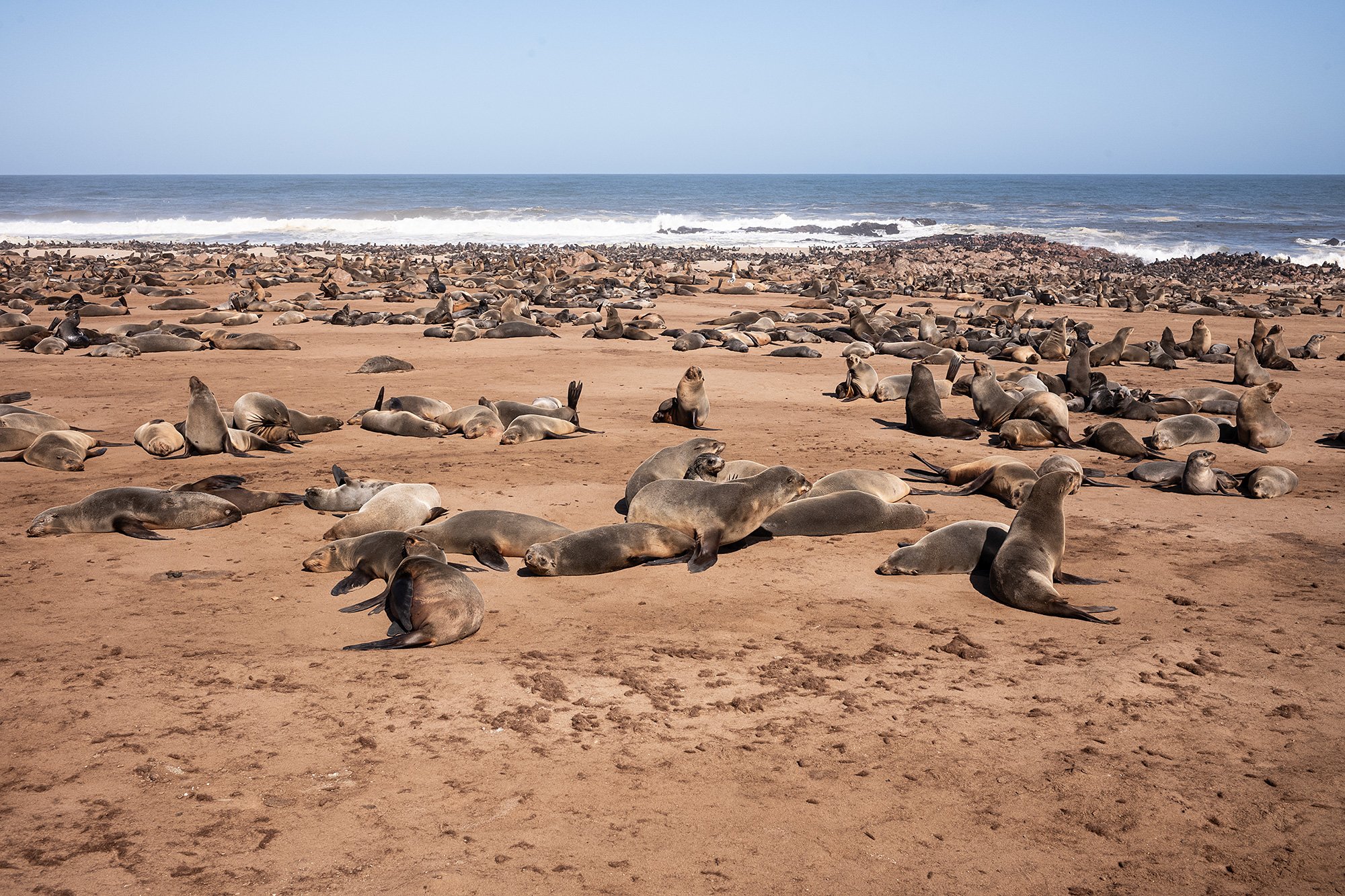
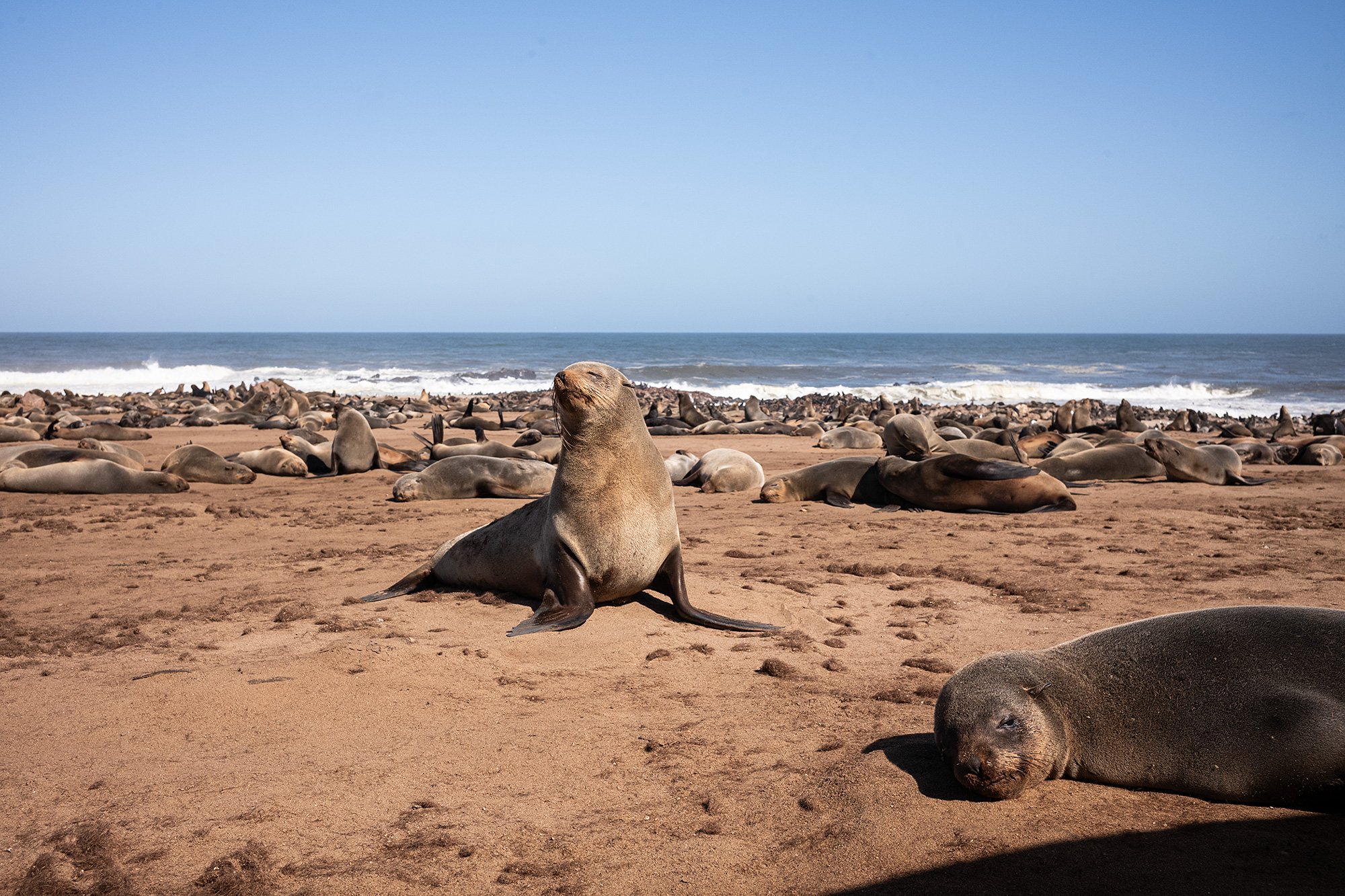

I follow the stone wall back to the parking lot. Seals follow me with their heads as I pass. The seal that had somehow made its way onto the wall continues to lie on the leveled surface, sunning themselves. I hear them snort as I walk by.
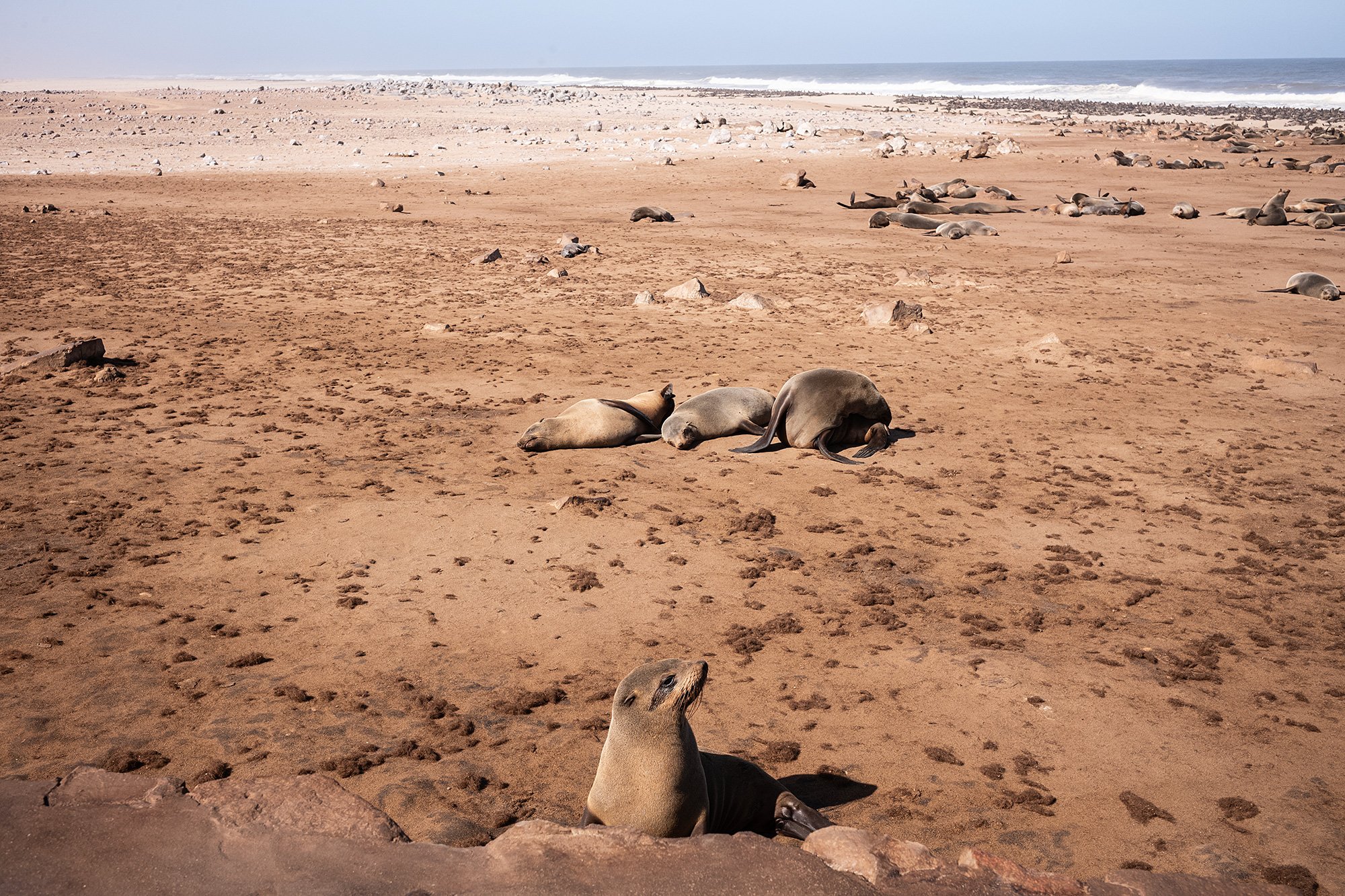
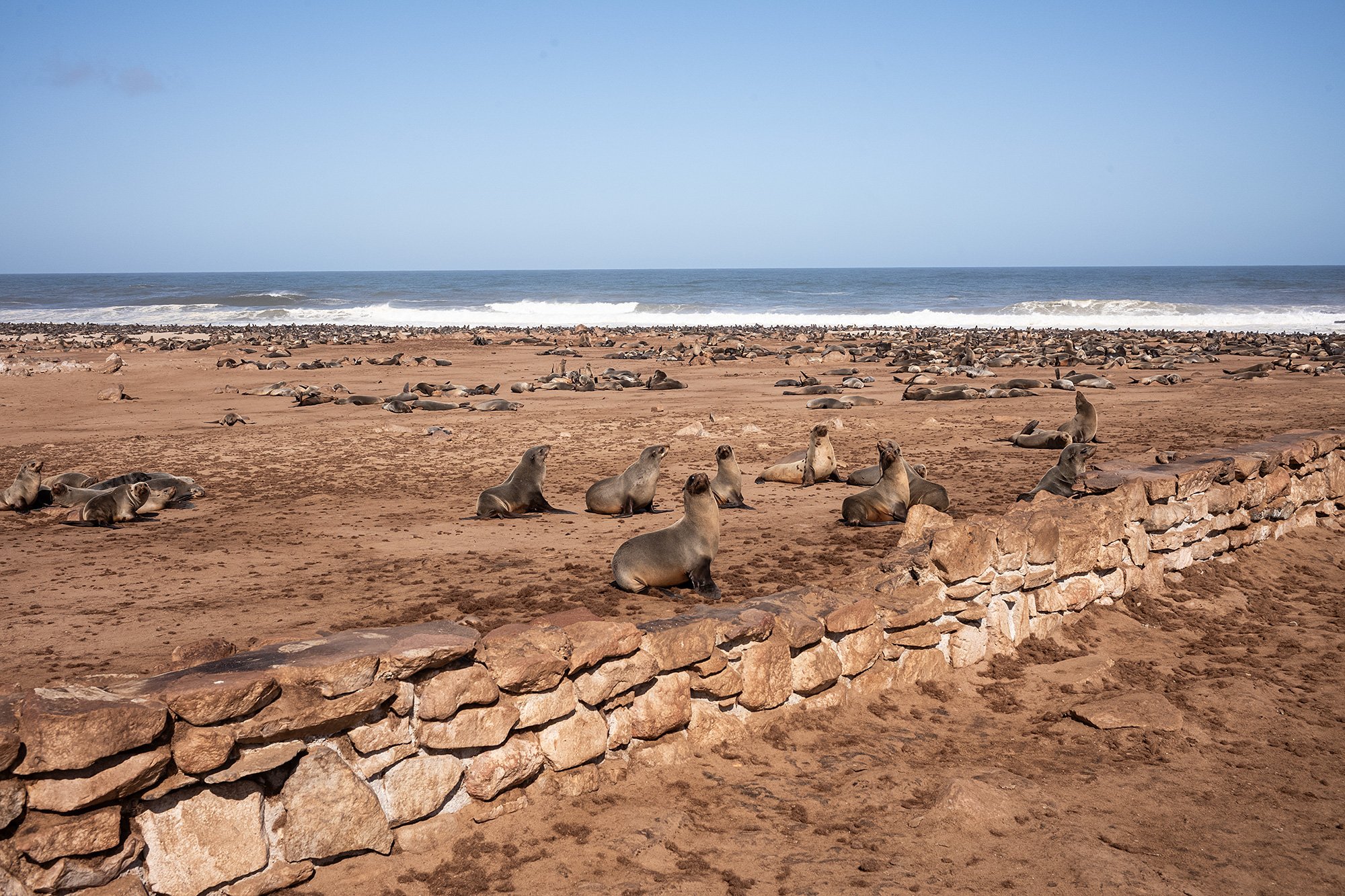


Leaving Cape Cross I follow the route I had taken, this time headed south. I pass the same desert landscape, the same stands selling salt crystals, the same town not too far from the seal colony.

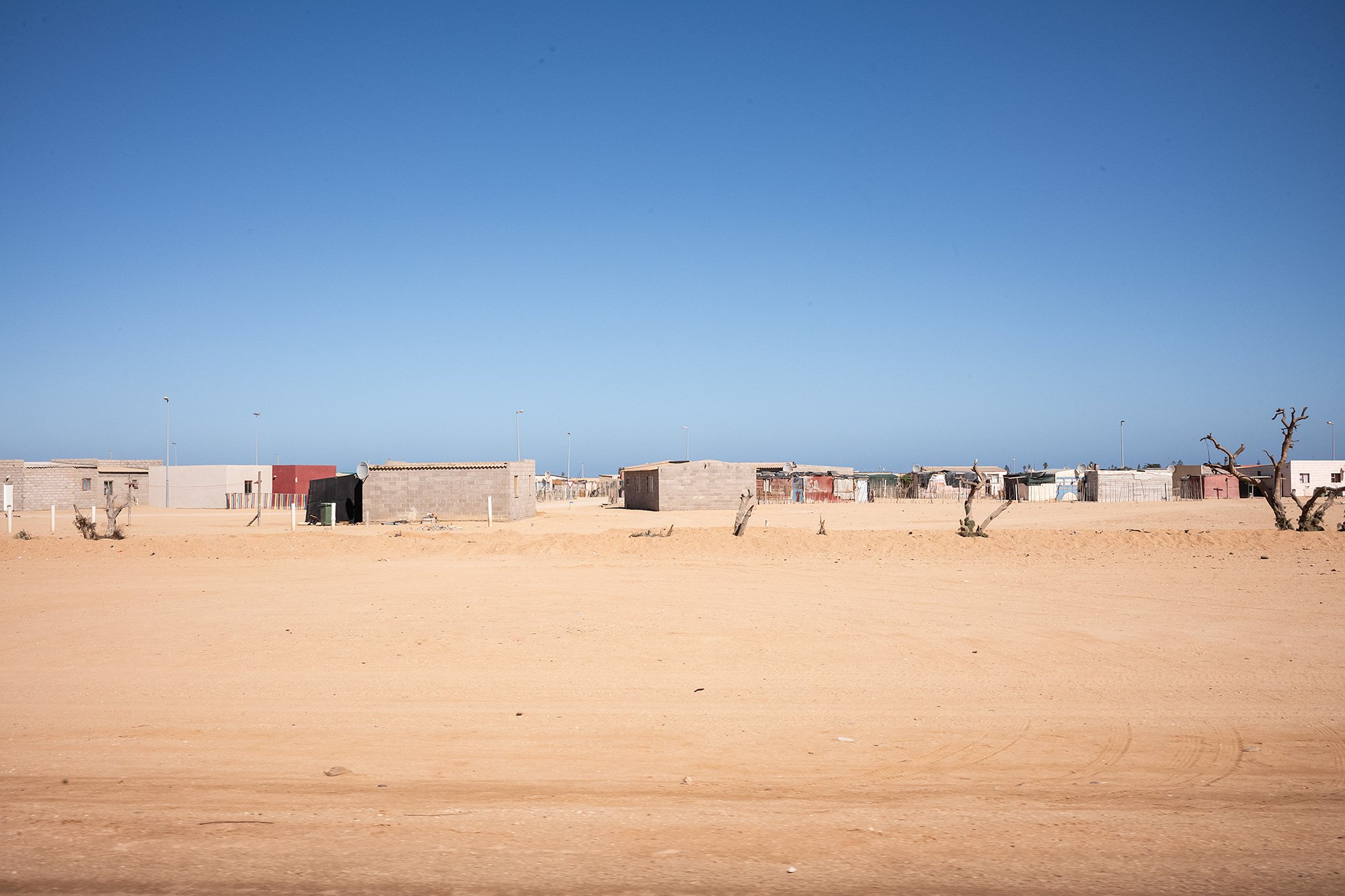
I’ve put the Zelia shipwreck into my GPS. Knowing where it is makes it easy to slow down and pull into the lot. A group of men sit in the shade of a tree and one lopes over after I’ve parked. He offers me trinkets and stones, and I decline. I walk over to the beach to take photos of the trawler run aground. The tide is high and the ship seems far; the sea washes over its decks as it sits immobile, listing slightly to its side.

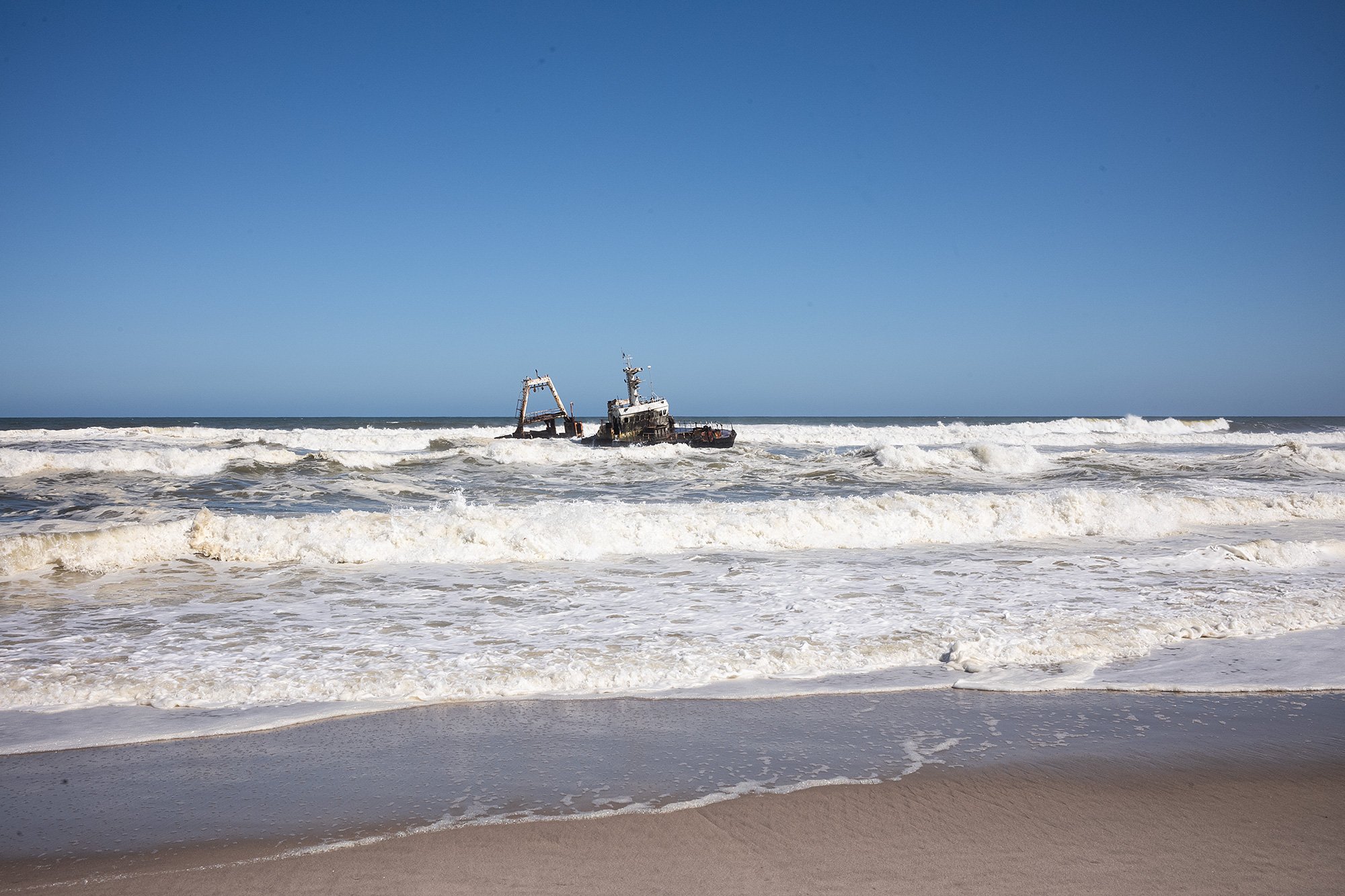
Back at the car, the men are persistent. I tell them I’m not interested in purchasing anything and then they ask for money. I shake my head and let myself into the car. They stand by as I turn over the engine and nudge my way back to the main road. I take a right turn and drive the rest of the way to Swakopmund.
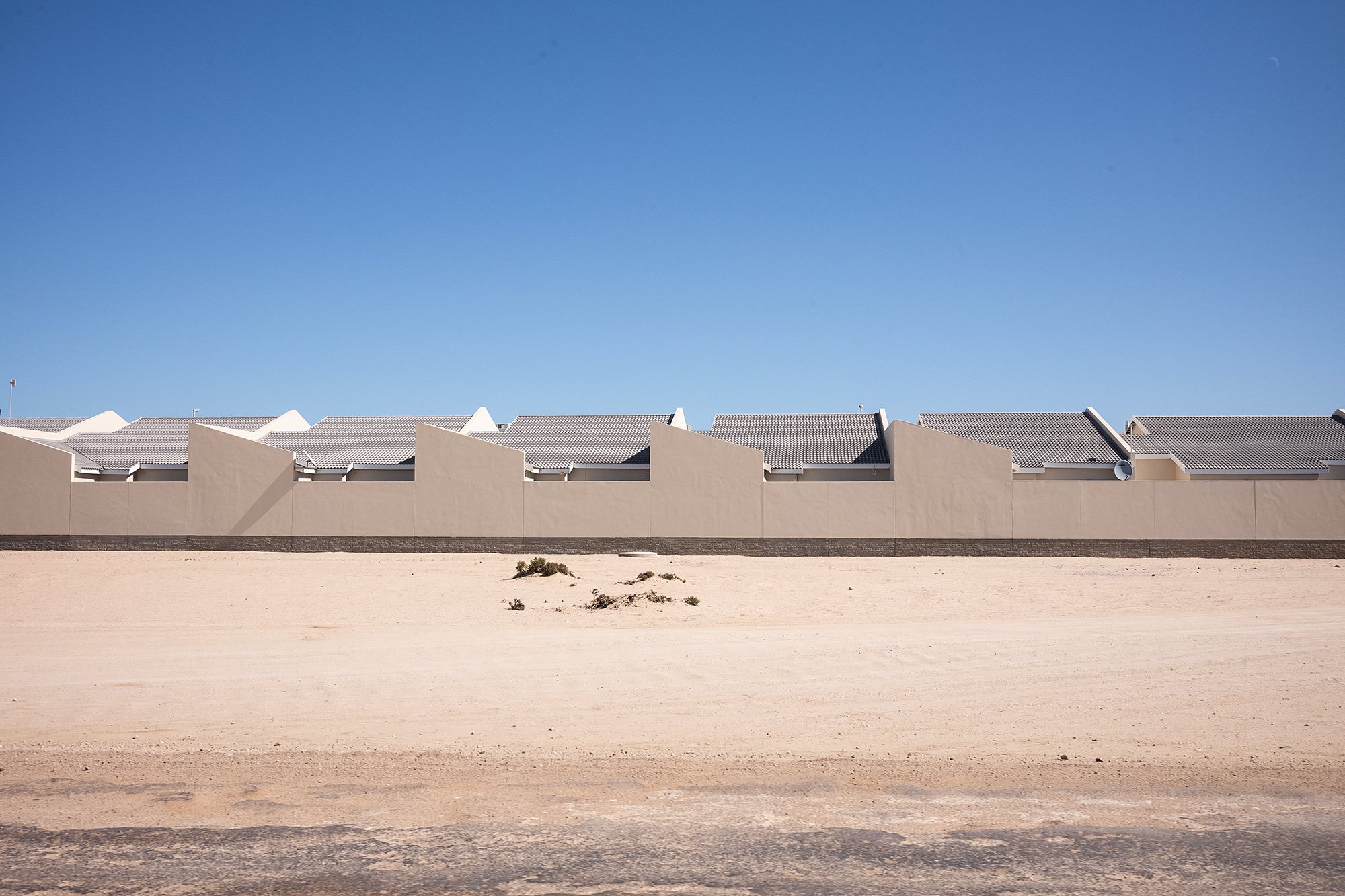
Back in town I run errands. At a Superspar I look to refill my jugs of water but their water dispenser is broken. There’s a toy store in the same strip mall and I walk in hoping to purchase Monopoly Deal.
I’m surprised to hear Chinese when I enter. A Chinese man in pajama pants chats with the owner, an Asian man from Taiwan. It’s his store and I ask him in Mandarin if he has Monopoly Deal. He hands me a deck and I am thrilled to finally have procured a copy. Checking the properties I see its an imported set from Asia, the cards reference streets in Hong Kong.
I fill up the gas tank and then park Olivia back at the hotel. I take a walk back to the center of town and treat myself to an ice cream before visiting the museum. It’s small, with the usual displays covering archeological history, local tribes, and the flora and fauna. A teacher shephards a group of schoolchildren past the exhibits, doing her best to ensure they abosorb some of the knowledge contained therein.
For dinner I walk to The Tug, recommended by everyone who hears I’m headed to Swakopmund. It’s a beautiful late afternoon and I walk through the park along the beach basking in the rays of the setting sun.
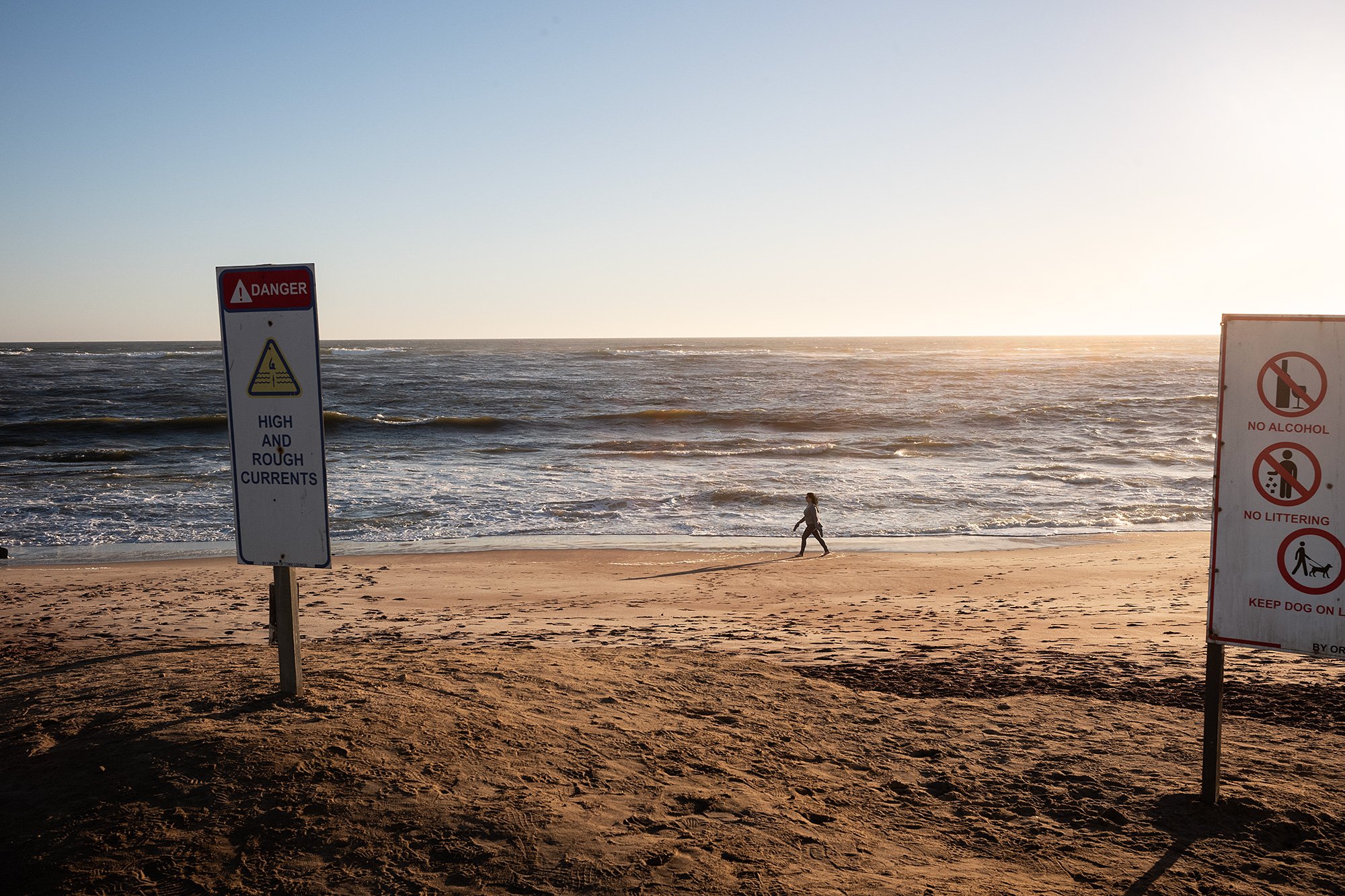
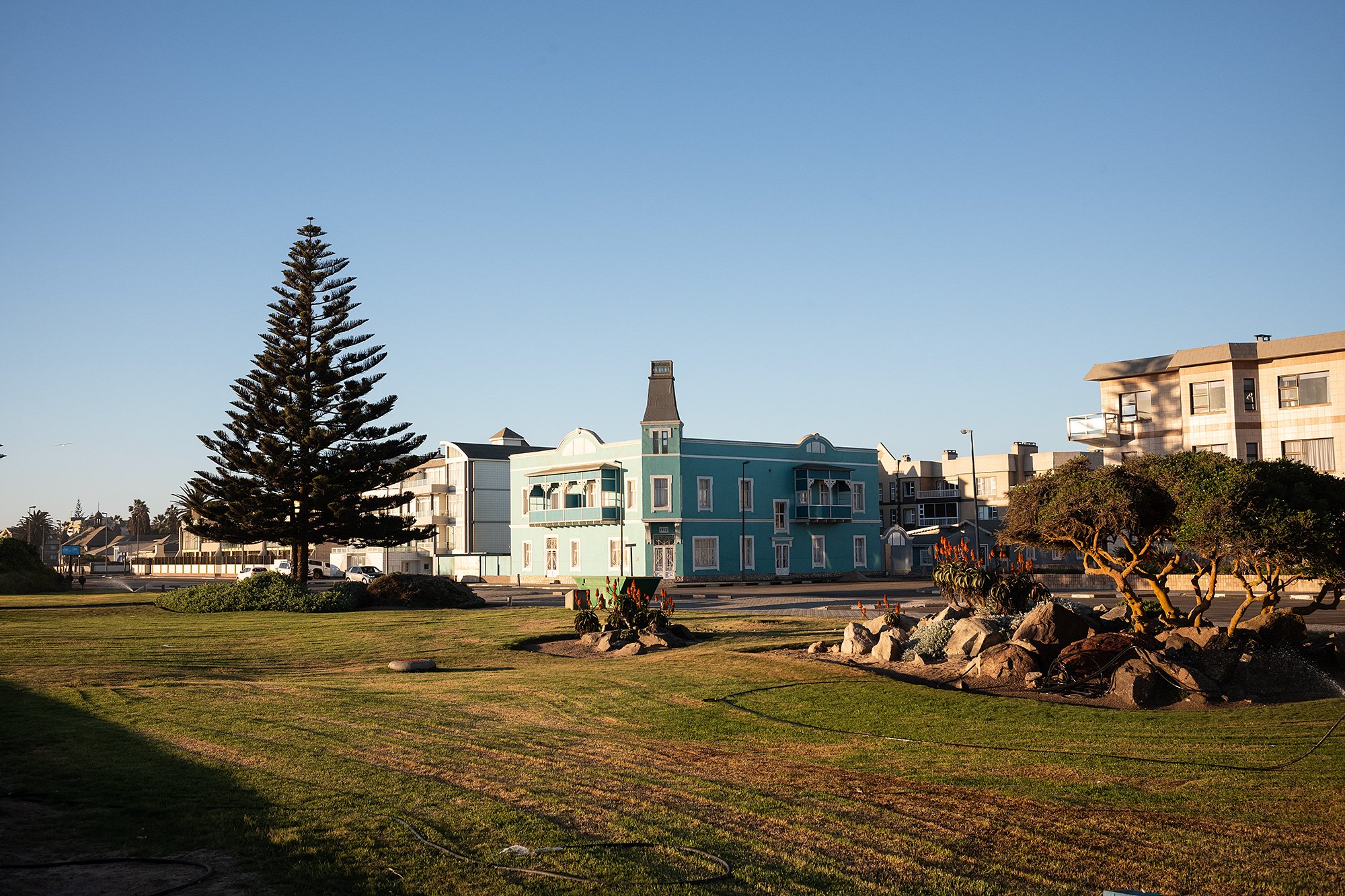
The Tug sits by the ocean, a tugboat converted into a restaurant. I’m lead to a table on the upper decks in the main cabin where the skipper must once have sat.
I order Kabeljou carpaccio, a local specialty that slices the raw fish thinly, serving it with onion, capers, and orange segments, accompanied with Teri Yaki sauce. For my main I order the catch of the day, doubling down with grilled kabeljou.

The sun sets over the course of my meal. Tour buses arrive in the parking lot, disgorging tourists in time to take photos of the last light of the day. It’s someone’s birthday and the staff sing in almost harmony. I don’t see the cake from where I sit but hear the chorus of men’s voices.
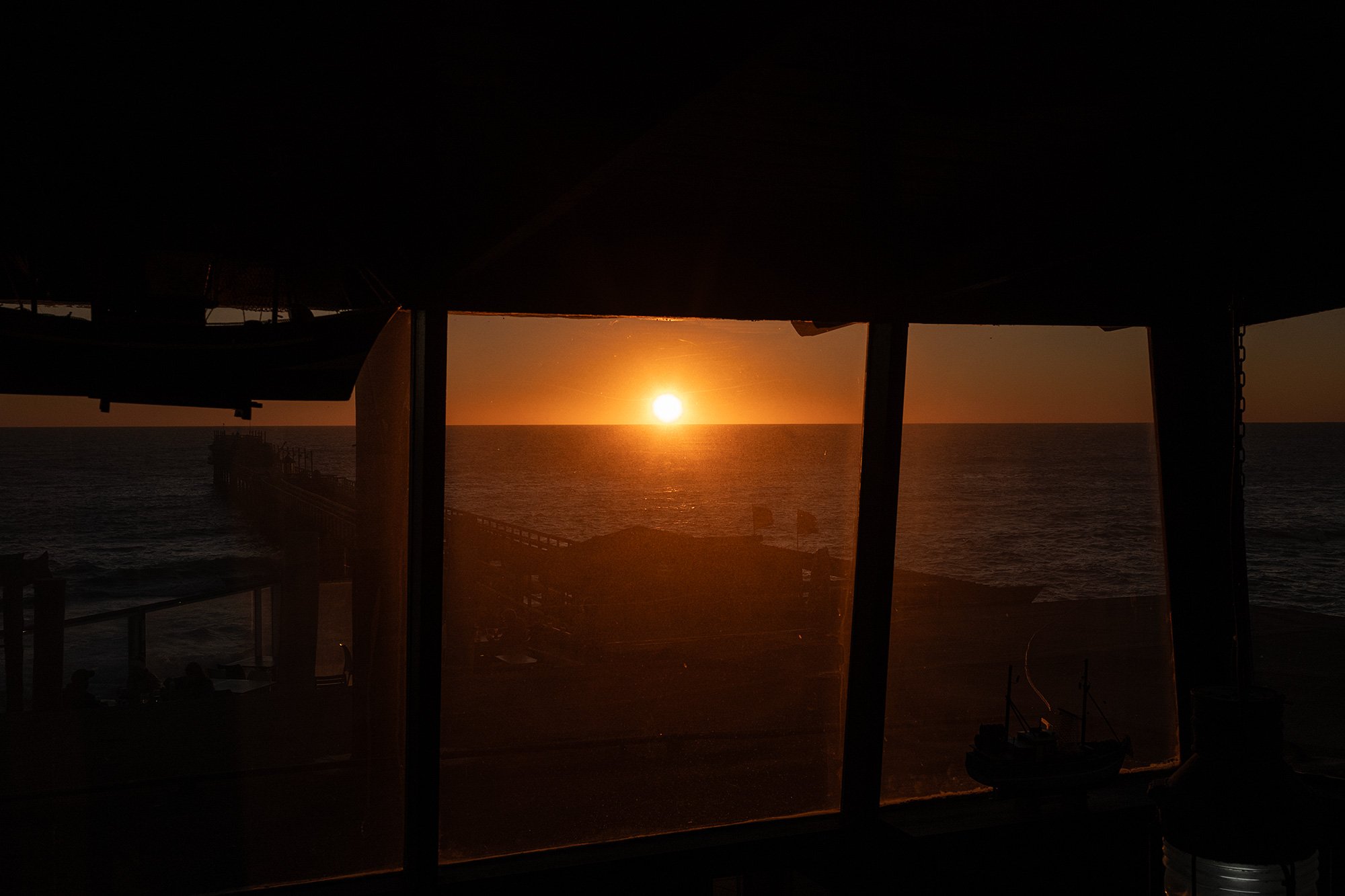

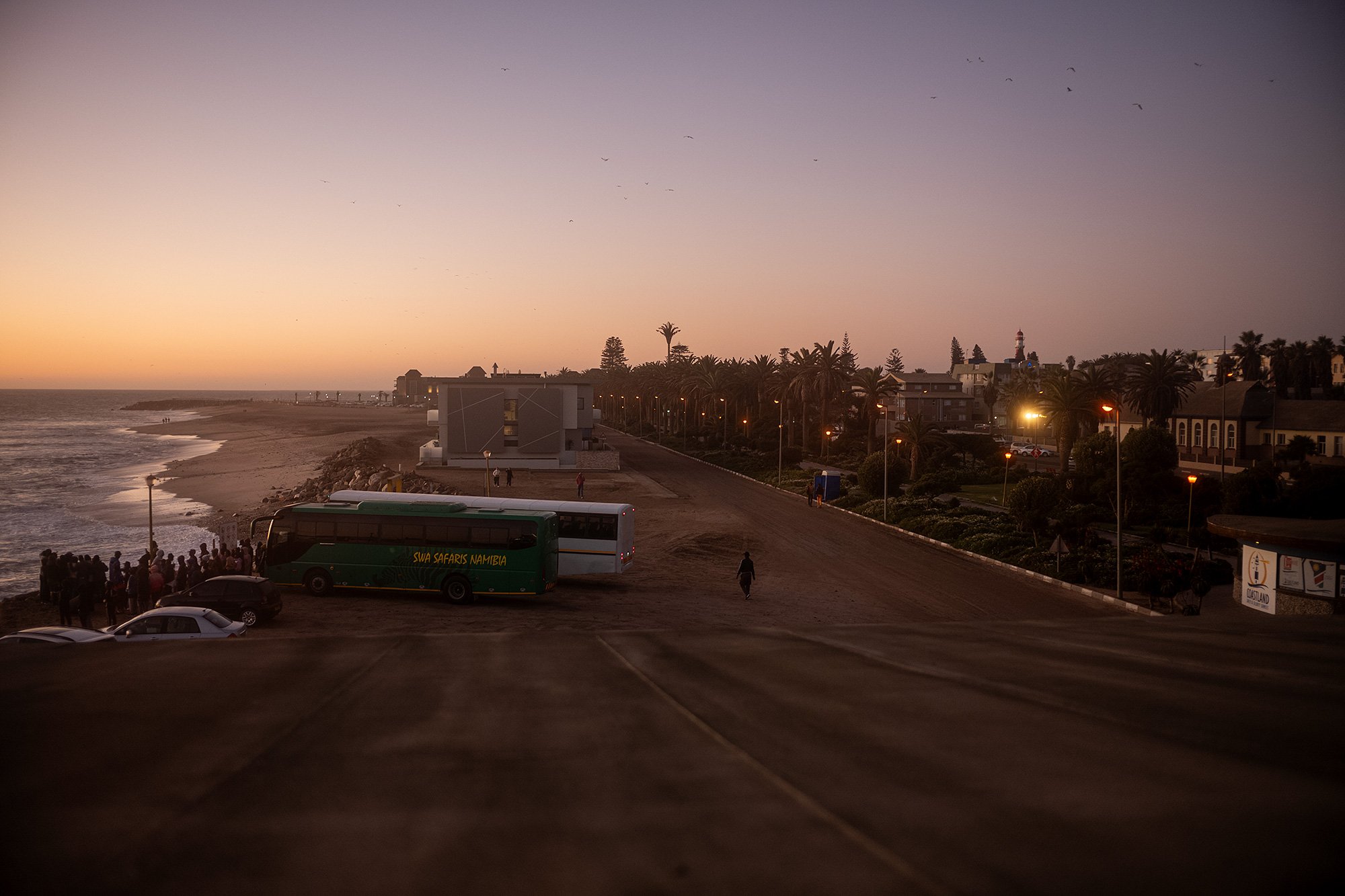
The sunset is stunning, the glow seeming to last forever. I think about stepping out and walking the length of the jetty, but think better of it and content myself with watching it from where I sit.
I imagine being on the open sea, surrounded by the vastness of the ocean, headed west in pursuit of the sun. My reverie is broken by the waiter. Would you like anything else? he asks. Just the check when you’re ready, thank you. 🇳🇦
1 June 2024
